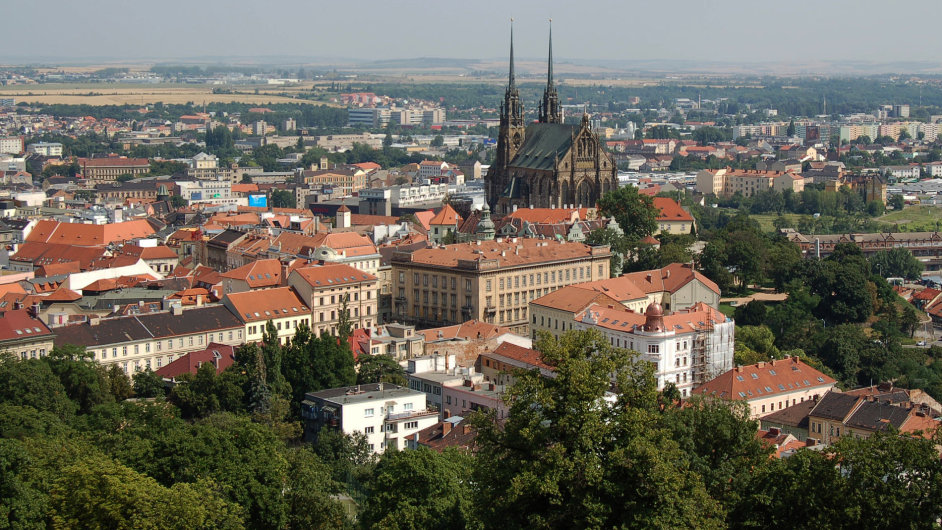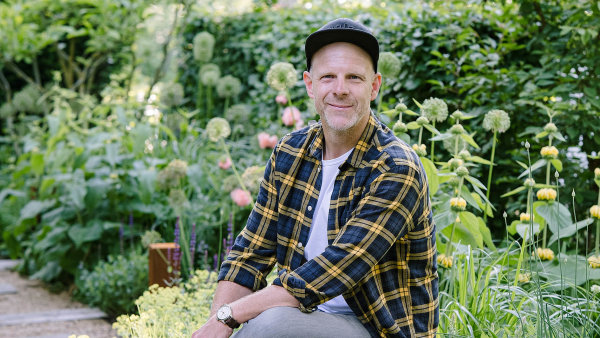Andrew L. Roberts has spent a lot of past 20 years in Brno and currently teaches undergraduate students at the Faculty of Social Studies of Masaryk University. Much of his work is connected to the Eastern European region.
What made you to choose Czech Republic and I am sure, many people would wonder, Brno in particular?
A lot of it is by chance. I wanted to live abroad after I finished my bachelor’s degree and at the time there were many jobs for English language tutors in Eastern Europe. A private language school in Brno offered me a job and a place to live, so I took it. If it had been Krakow or Budapest, I might have ended up there. However, I liked Brno and so I’ve always been based here.
There is a huge rivalry between Brno and Prague, do you know that?
I tend to identify with the underdog and Brno is definitely the underdog compared to Prague. I usually tell students that when they go to study in a foreign country, they should choose a city other than the capital. You get a much better sense of the culture from these provincial cities than from the more cosmopolitan capital.
What was most difficult for you after you started living in the Czech Republic?
This was back in the early nineties and so things were a little different. My first meal in the country was a homemade dinner of krupicova kase. I didn’t understand how this could be a dinner. Most stores and restaurants were closed on Sunday and I struggled to recognize some of the food. For a while I ate goulash every day in the self-service bar near the train station. Even now I still miss all the ethnic foods that are easy to get at home and I still haven’t warmed to Czech food. It mostly seems tasteless to me.
On the other hand, was there anything that surprised you by how easy it went?
I’ve almost never encountered prejudice against Americans. No one ever seemed to judge me by where I’m from. It was always easy to win people over by trying to speak the language.
Hops is the fuel of Czechs
You say that before you came to Brno you didn´t know anything about our country except a few novels by Kundera. In 2005 an amazing book of yours was published, a dictionary of Czech popular culture for foreigners - what was the impulse that made you to do so?
When I was teaching English conversation, I tried to ask students about classic Czech films (Forman, Menzel, etc.) and they said that what I really had to see was Limonadovy Joe or Starci na chmelu. Gradually I just got curious about all of these things that seemed so natural to Czechs but unknown to everyone else. I started making a list of them and it just got out of control.
Explanations in the book are really fitting, such as “Chmel or hops is the fuel that powers the Czech nation”; what feedback have you received on the book from both foreigners and Czechs?
Mostly it’s been positive. It’s nice to hear Czechs say, “Oh, I forgot about that” or even “I never heard of that.” I was particularly happy about the quote from the editor of the Prague Post who said that it was the book he wished he had received on his first day in the country. The one thing that bothers me is that it isn’t available in bookstores here.
It really seems you took the Czech culture to your heart. As one can find out on your website, you are a big fan of Jara Cimrman, you have even translated some of their plays into English - what is it that you like about them so much?
I think it is amazing that they could be funny and intelligent at the same time. Popular comedy based on lots of historical and literary allusions and a parody of academic life, not to mention the national character, is something incredibly rare. I thought that if you did something like that you would condemn yourself to a tiny audience of intelligence. That they were able to make the theatre so popular really amazes me. I wish we had something like this in the US.
Czech student are more mature than the Americans
Let´s focus a little more on academia. You are now teaching several courses at the Faculty of Social Studies. Would you say Czech students are different from undergraduates in the US?
I wouldn’t want to make any definitive judgment. Comparing MU to the better schools of the very broad range we have in the US, I would say that the biggest difference is that students here are much less demanding. American students want more from professors – more attention, better grades. Here students seem more content to accept what they are given and not complain.
American students (again, at the better universities) are pampered – they live in nice dorms, they have all their meals together, they spend all their time on campus and have lots of activities sponsored by the university. It is something like an all-inclusive vacation. Here the students seem more independent. They have real lives outside of the university. I feel like I am interacting with adults more than young people.
One difference might be how hard students are working. I get the sense here that students aren’t working all that hard. In the US, there is the tradition of the “all-nighter” and you can find students in the library until it closes (which is around midnight or later).
It seems that you are strongly interested in the post-communist sector, its politics and development. How would you say did Czech Republic manage to deal with the past?
I have a relatively positive view of Czech politics. (I think I differ from my colleagues here.) Certainly politics here isn’t perfect and there are things that I would like to change, but overall it strikes me as a normal, functioning democracy.
Sure, it would have been nice to punish the old communists and draw a line between the past and the present, but really our focus should be on the future.
Bottom line: If students want to talk about any of the topics mentioned above, they are very welcome to visit Roberts in the FSS´s office 4.57.






